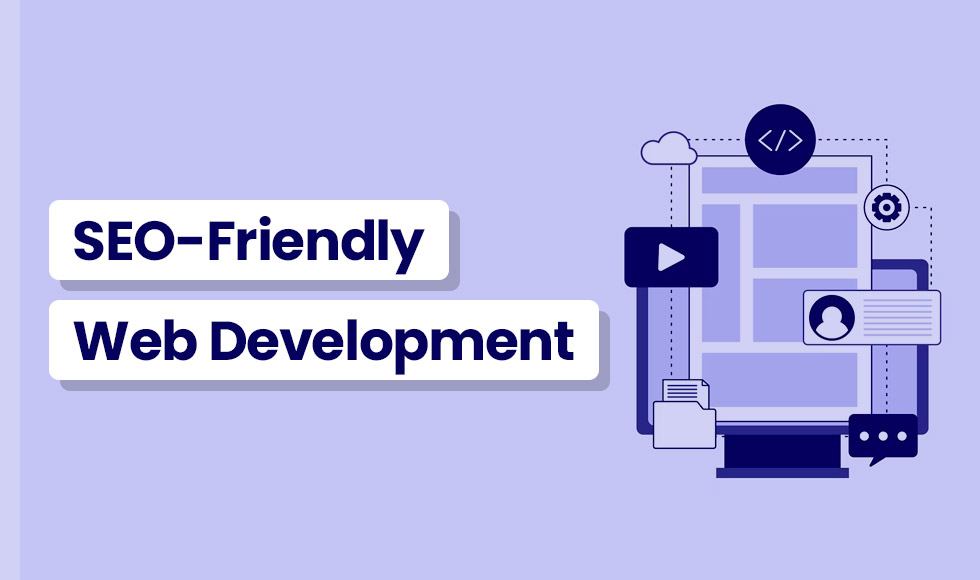Search Engine Optimization (SEO) is a fundamental aspect of web development that focuses on improving a website’s visibility in search engine results pages (SERPs). Effective SEO strategies can drive organic traffic, enhance user experience, and ultimately lead to increased conversions. This article explores the significance of SEO in web development, key components, and best practices for integrating SEO into the development process.
What is SEO?
SEO involves a set of strategies and techniques aimed at optimizing a website to rank higher in search engine results. It encompasses both on-page and off-page factors, including keyword research, content optimization, site structure, and link building. The ultimate goal of SEO is to enhance the quantity and quality of organic traffic to a website.
The Importance of SEO in Web Development
- Increased Visibility: With billions of websites on the internet, SEO helps your site stand out in search results. Higher visibility increases the chances of attracting users who are actively searching for your products or services.
- Organic Traffic: Unlike paid advertising, organic traffic from search engines is cost-effective and sustainable over time. A well-optimized site can continue to attract visitors without ongoing advertising costs.
- Improved User Experience: Many SEO practices overlap with user experience principles. Optimizing page load speeds, ensuring mobile-friendliness, and improving site navigation contribute to a better overall experience for users.
- Higher Conversion Rates: SEO helps target specific keywords that align with user intent. When users find relevant content that meets their needs, they are more likely to convert, whether that means making a purchase, signing up for a newsletter, or filling out a contact form.
- Brand Credibility: High-ranking websites are often perceived as more credible and trustworthy. Users are more likely to engage with and share content from sites that appear at the top of search results.
Key Components of SEO
Keyword Research: Identifying the right keywords is essential for effective SEO. Use tools like Google Keyword Planner, SEMrush, or Ahrefs to find keywords that align with your target audience’s search behavior.
On-Page SEO: This involves optimizing individual pages to rank higher and earn more relevant traffic. Key on-page elements include:
- Title Tags: Ensure each page has a unique title that includes relevant keywords.
- Meta Descriptions: Write compelling meta descriptions that summarize the page content and encourage clicks.
- Header Tags: Use header tags (H1, H2, H3) to structure content and include keywords where appropriate.
- Internal Linking: Create links within your content to related pages on your site, improving navigation and helping search engines understand your site structure.
Off-Page SEO: Off-page SEO refers to actions taken outside your own website to impact your rankings. This primarily involves link building—acquiring backlinks from reputable sites to increase authority and trustworthiness.
Technical SEO: This aspect focuses on optimizing the technical elements of your website. Key components include:
- Site Speed: Ensure fast loading times for better user experience and SEO rankings.
- Mobile Optimization: Design your site to be mobile-friendly, as search engines prioritize mobile responsiveness.
- XML Sitemaps: Create and submit an XML sitemap to help search engines crawl and index your site more effectively.
- Robots.txt: Use a robots.txt file to control which pages search engines can and cannot crawl.
Content Quality: Creating high-quality, relevant, and engaging content is crucial for SEO. Content should address user needs, provide value, and encourage sharing.
Best Practices for Integrating SEO into Web Development
- Plan for SEO from the Start: Integrate SEO considerations into the web development process from the beginning. This includes planning site architecture, choosing a content management system (CMS), and implementing responsive design.
- Use SEO-Friendly URLs: Ensure URLs are concise, descriptive, and include relevant keywords. Avoid using long strings of numbers or special characters.
- Implement Structured Data: Use schema markup to provide search engines with additional context about your content. This can enhance search result listings with rich snippets, improving click-through rates.
- Regularly Update Content: Keep your content fresh and relevant by regularly updating existing pages and adding new articles or blog posts. This signals to search engines that your site is active and valuable.
- Monitor SEO Performance: Use tools like Google Analytics and Google Search Console to track your website’s performance. Monitor key metrics such as organic traffic, bounce rates, and conversion rates to identify areas for improvement.
Conclusion
SEO is an integral part of web development that directly impacts a website’s visibility, traffic, and success. By understanding the importance of SEO and implementing best practices throughout the development process, developers can create sites that not only attract users but also provide valuable experiences. In a competitive digital landscape, effective SEO strategies are essential for achieving long-term success.


